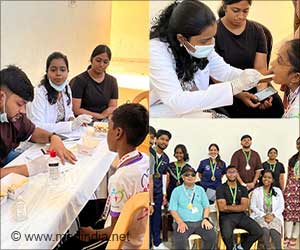The number of people needing organ transplants is rising faster than the number of donors, according to statistics from the U.S. Department of Health and Human Services. Roughly 77 people receive organ transplants per day in the United States, but 18 people die each day waiting for transplants that will never happen due to the shortage of available organs.
Organ transplantation involves putting organs or tissues from one person into the body of another person, whose organs or tissues have been damaged or are no longer working.“The recipient has to be immunologically matched to the donor well enough that the organ won't be immediately rejected,” says Mark Schnitzler, Ph.D., assistant professor of health administration at Washington University School of Medicine in St. Louis. “Blood type match has to be acceptable and the recipient can’t be already sensitized to the donor’s tissue types.”
The need for transplants is particularly high among minorities, especially among African-Americans. Of the 83,000 people on the national transplant waiting list, approximately fifty percent are minorities, according to United Network for Organ Sharing.
According to a recent study in the American Journal for Respiratory Critical Care Medicine, David J. Lederer, M.D., and colleagues at Columbia University College of Physicians and Surgeons in New York found that, “After listing for lung transplantation, African-American patients with chronic obstructive pulmonary disease were less likely to undergo transplantation and more likely to die or be removed from the list compared with Caucasian patients.” Unequal access to care is among the likely reasons Lederer and his team cited for this disparity.
Organ donation recipients are more likely to match up to others of their own race and ethnicity. “Both blood type and tissue types have racial and ethnic patterns,” Schnitzler said. That is why it is important to look into ways to increase minority organ donations.
The need for more donor organs among minority women is especially great because minority women suffer disproportionately from certain diseases of the kidney, heart, lung, pancreas, and liver that can lead to organ failure.
Advertisement
Further complicating matters are studies that show the biological sex of the organ donor and recipient can affect transplant success. At least one study has found that the combinations least likely to result in organ rejection are female recipient-male donor, followed by male recipient-male donor.
Advertisement
Health promotion and disease prevention programs are needed to shed light on the diseases and negative lifestyle choices that may increase the need for organ transplants. Diseases such as diabetes and hypertension and behaviors including alcohol and substance abuse, poor nutrition and lack of exercise are all risk factors for diseases that can cause permanent or irreversible damage to organs and tissues.
The Minority Organ Tissue Transplant Education Program is working to increase awareness for minority organ donation. This program also provides information that is vital to good health and can delay or prevent the need for organ transplants.
Source-Newswise
SRM/L






